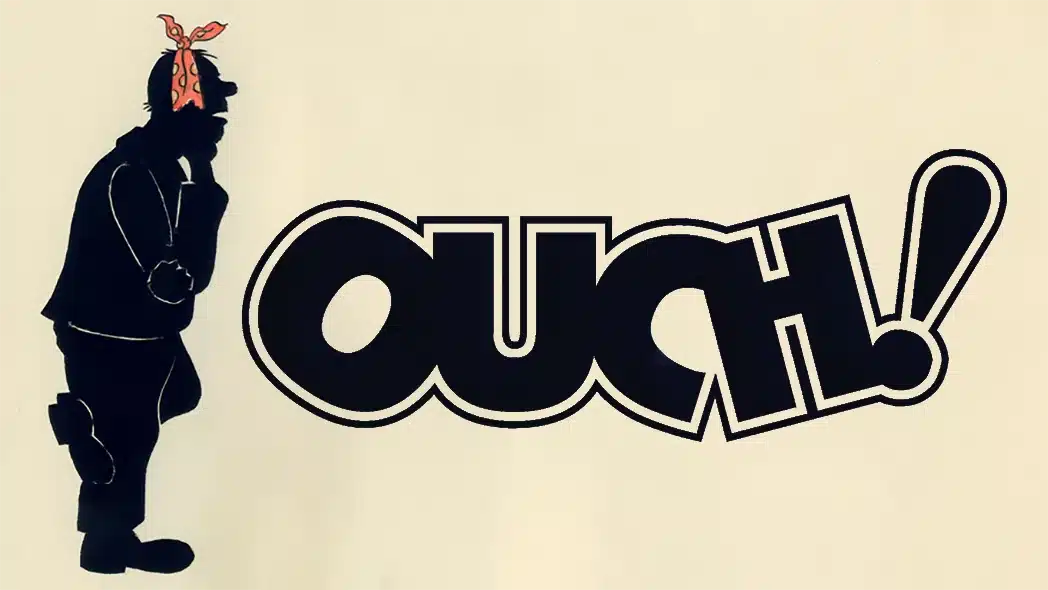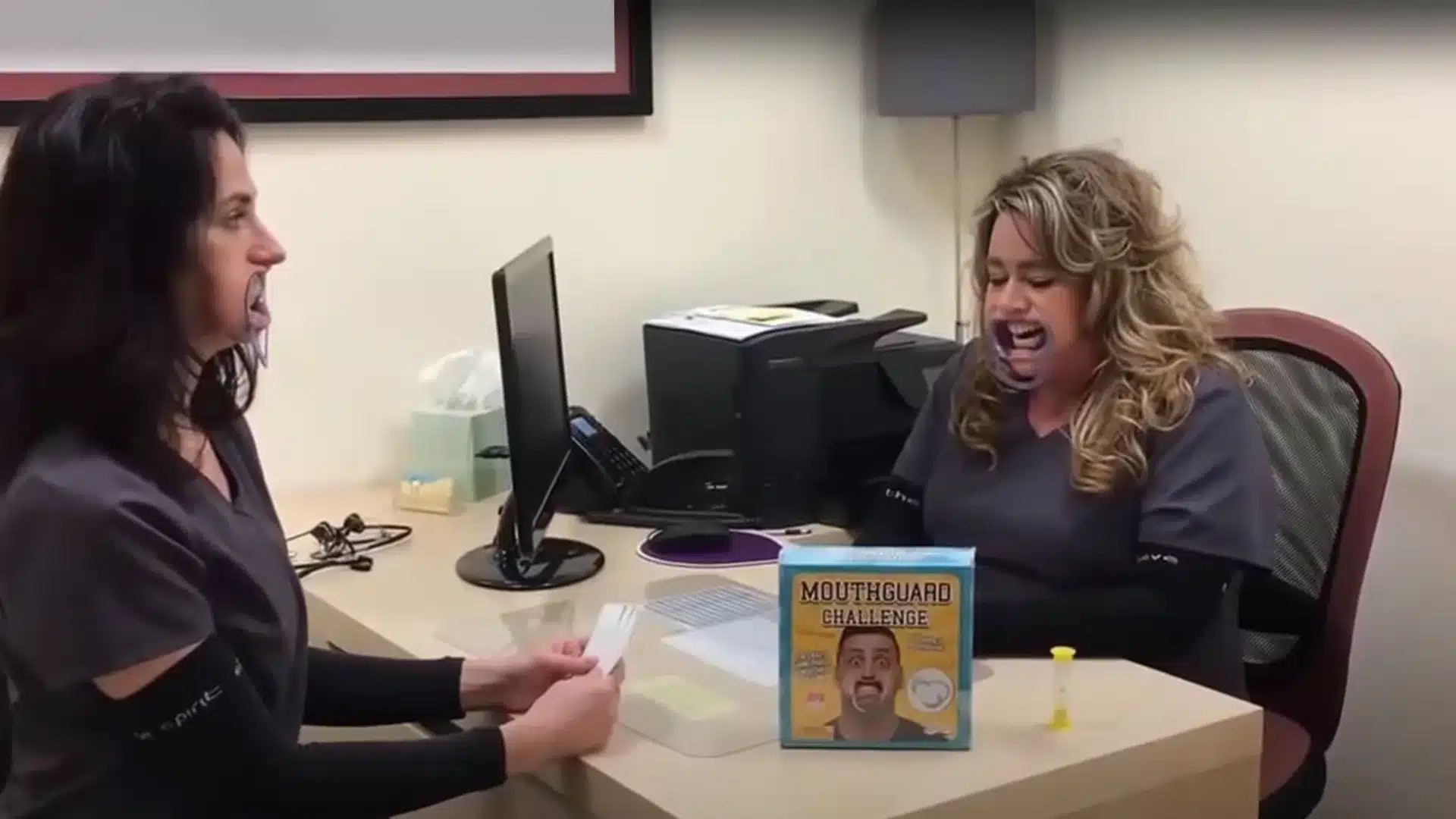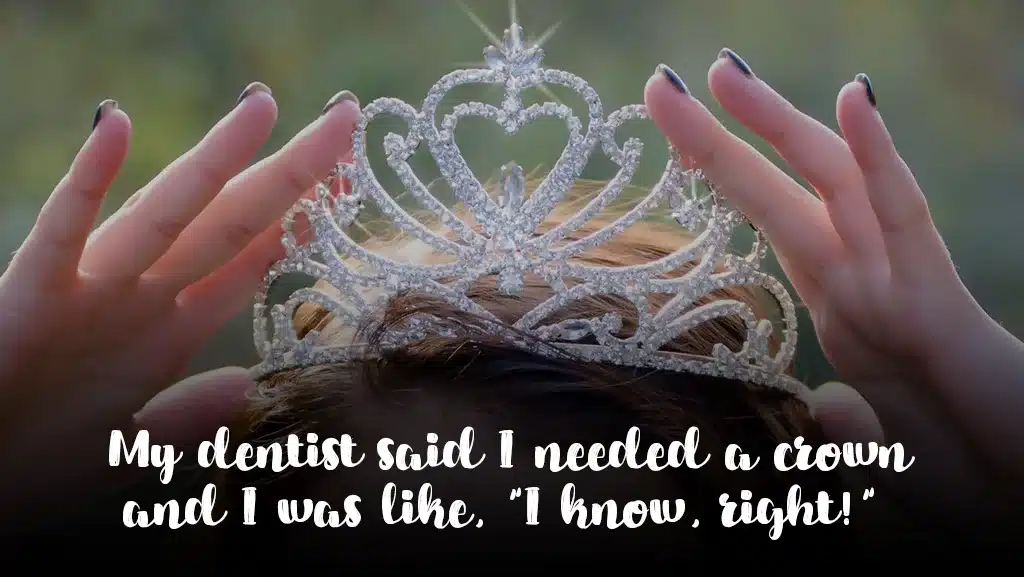Whether it’s the avoidance of or the onset of, pain is a great motivator. And let’s face it, toothache PAIN is one of the primary reasons people go to the dentist. When you have a toothache, you definitely need to visit a dentist – sooner rather than later. I’d like to talk a bit about toothaches, how to determine whether it’s a dental emergency, and what to do in certain situations.
Dental 911?
Non-emergencies in dentistry are extremely common, but the key is knowing when you can wait it out and when you need to rush to a professional. An easy distinction when you’re a dentist, not so easy when you’re not.
A helpful checklist for the non-dentist
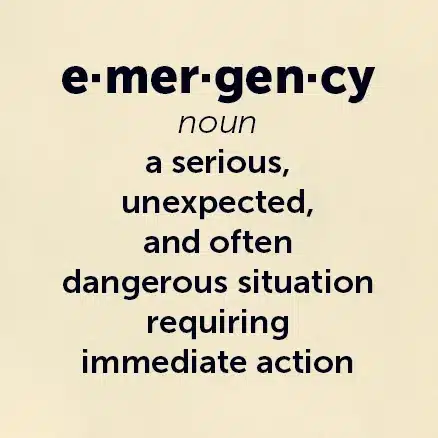
If you’re having tooth or jaw pain, should you just wait and hope it goes away or should you give your dentist a call? What if it’s after-hours, or the weekend?
To help determine if you have a dental emergency on your hands, ask yourself (or your hurting spouse, or friend, or child) these 5 questions:
- Are you bleeding from the mouth?
- Are you in severe pain?
- Do you have any loose teeth?
- Do you have any swelling in the face/mouth?
- Do you have any bulges/swelling/knots on your gums?
If you answered ‘yes’ to ANY of these questions, call your dentist immediately and ask for an emergency appointment!
Do not wait until you’ve finished watching your episode of “The Walking Dead” and, for Pete’s sake (pun intended), do not resort to self-dentistry.
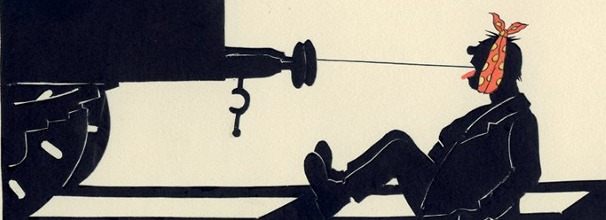
Tooth to a rail car is probably not going to solve your problem. Nor should you consider grabbing the pliers from the toolbox and performing your own tooth extraction over the kitchen sink (true story and really, really, really not ‘doctor recommended’)!
Emergency Toothaches
Bar Brawls & ‘Boys Will Be Boys’
Boys will definitely be boys, and sometimes girls will be girls. If you’ve got a loose tooth, a tooth that’s gotten knocked out, or an impacted wisdom tooth – all emergencies – here’s what to do until you get to your dentist:
Help, my tooth is loose!
If you have a loose tooth (‘luxation‘ is the fancy term) because it has been pushed out of place, you can try and move it back into the original position using your finger and applying light pressure. It is ok to bite down to keep it from moving, but bite gently (just enough to hold it in place). Call the office to have us check it out because the tooth may need to be splinted to adjacent teeth, keeping it stabilized.
Help, my tooth got knocked out!
If you have an ‘avulsed‘ tooth – one that got knocked out (maybe you’ve been involved in some shenanigans down at the Blue Goose) – try to handle it only by the crown. Do not clean off any of the gum tissue fibers that may still be on the root. Either put it in some milk or in a saline solution (used for contact lenses), or you can pocket the tooth in your cheek so it is kept moist by your saliva. Then get to our dental office ASAP, where we can re-implant it and splint it to adjacent teeth. If it’s a child who has knocked out a baby tooth, we will not replant the tooth, but if the entire tooth has not come out by the root, we will need to check and make sure that there are no broken pieces remaining.
Help, I think my wisdom tooth has erupted!
‘Pericoronitis‘ is a super fancy, one-word description for an inflamed gum over a partially erupted wisdom tooth. When bacteria and food start to collect under the flap of gum covering the partially exposed tooth, swelling, tenderness, pain and a bad taste from pus oozing beneath the flap are surefire signs. Call us so we can irrigate the collected food and bacteria from the area, prescribe antibiotics for the infection, and make a future appointment for an extraction.
Help, I have a chipmunk cheek!
One of the most painful toothaches you can have is suffering from a full-blown abscess.
“It’s been bothering me for a few weeks, I thought it would go away, but it hasn’t. Now I have a chipmunk cheek!”
A swollen cheek probably means swelling and pus. If it’s draining, the pain will be less severe. If it’s not draining, an incision and drainage is done to relieve the pressure, followed by a root canal to remove the inflamed pulp. Or an extraction.
You can develop cellulitis if the infection spreads into the surrounding tissue. Diffuse, tense, and painful swelling of the area can ensue. You can even develop a fever and the airway can be compromised. A course of antibiotics and a root canal or extraction will be necessary.
Non-Emergency Toothaches
Then there are non-emergency toothaches. While they often feel like an emergency at the time, you can generally call to schedule a non-emergency appointment for these:
The Weekend Toothache
On Monday mornings our answering service is usually filled with calls about weekend toothaches. The symptoms are typically pain with hot, cold, or sweets that typically lasts for a few seconds and then resolves spontaneously (and are likely brought on by a Saturday afternoon round of miniature golf and and ice-cream at Taber’s Lakeside Stand).
This type of toothache can indicate a ‘pulpal inflammation’ which, if left untreated, can lead to an abscess in the roots and cellulitis. The sensitivity indicates that decay in the tooth is getting close to the pulp chamber, which causes inflammation. Though not a dental emergency, if caught early enough we can remove the decay and place a filling to stop further damage.
‘Irreversible pulpitis’ is what happens if you wait too long thinking it will go away (a common mindset among dental patients). Pain starts to become severe, spontaneous, and persistent and it becomes harder to identify the exact origin. Your tooth is also extremely sensitive to percussion with a metal object. The only way to treat this is to extract the tooth, or to remove the pulp entirely by way of a root canal. The degree of symptoms should not be left for more than a few days (even if you have a high threshold for pain), an NSAID (nonsteroidal anti-inflammatory drug like Aspirin) or acetaminophen (like Tylenol) are helpful.
The Thursday Chip
If a tooth is chipped and it doesn’t hurt, you’re definitely ready for ‘Casual Friday.’ A slightly chipped tooth usually does not constitute a dental emergency. Most people report the biggest issue just being sharp edge when they run their tongue over it. And there’s a fairly simple solution to that problem. Depending on the chip, it can either be smoothed off, or some composite filling material used to repair the area.
Damage to the tooth’s enamel, tissue and/or pulp indicates a moderate fracture. A crack or fracture in your tooth could be an indication of damage inside the tooth. We will need to take an x-ray of the tooth; if the soft tissue (pulp) is damaged, you may need a root canal. Depending on the type of break or fracture, it will either need a filling or crown to prevent further breakage.
It is important to remember that until you get in for your appointment, you need to be careful while chewing, so you do not chip the tooth any further.
Do-It-Yourself Dentistry
While I can’t recommend pulling out your own abscessed tooth with a pliers (see above), there are times when you’ve got a dental condition you can treat yourself. DIY Dentistry includes:
Pizza Palate
This is what happens when I get too impatient waiting for my Da Vinci (with extra meat sauce) from 84 Court to cool down and wind up burning the roof of my mouth. Ibuprofen is your best friend, and maybe staying away from cheese fondue for a few days.
The Old Popcorn In The Gum Trick
Say you’ve noticed some swelling in an isolated area of your gum. More often than not, this is the result of a lodged foreign body that is irritating the surrounding tissue. If popcorn or Doritos are a part of your late night snack habit, there’s a good chance you’ve done the old popcorn in the gum trick without even realizing it. Popcorn and Doritos are actually the most common offenders. An easy at-home remedy involves working at the area with some floss and swishing water. Alternate the two until you get relief.
An Ounce of Prevention
There are simple ways to help prevent dental emergencies, things like: not chewing on ice, not using your teeth to open packages, wearing a mouth guard during high contact sports, brushing twice a day and flossing every day.
It goes without saying that one of the best ways to avoid being in the dental chair for an unplanned emergency, is to actually schedule routine check ups. It’s quite often a lack of planning and routine care that results in pain and emergency visits to the dentist. You might be surprised at then number of calls we get that sound something like this: “I haven’t been to the dentist in about five years, and I broke my tooth about a month ago, it hasn’t been bothering me, but I woke up this morning and now my face is swollen. Can I get in today, but not until after 4, because I work til 3:30?”
Dental Doom’s Day; A Prepper’s Guide
A dental emergency can happen any time, any place, so it’s often hard to be prepared. However, a few things to keep in mind as part of a dental ‘first aid kit’ are:
- Your dentist’s contact information
- Acetaminophen
- Gauze or a handkerchief
While ibuprofen is great for swelling and pain, it can act as a blood thinner and has the potential for increased bleeding during a dental emergency, so stick with Acetaminophen (like Tylenol) for a pain reliever in a dental emergency. Unless you’re an EMT or a very old person, chances are you won’t have gauze or a hanky on hand. So stick one in the car, or in your purse, just in case you ever have the need to treat a dental issue on the spot.
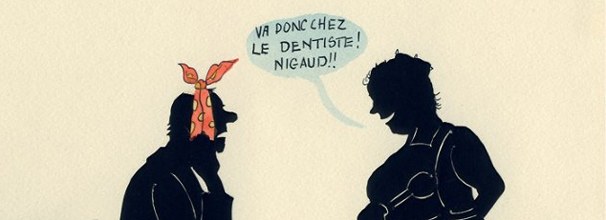
Remember that scene in Castaway where Tom Hanks performed radical dentistry on himself? Given he was lost on a deserted island and suffering what was likely an absessed tooth, most of us can understand how he ended up resorting to the ice skate solution. Luckily, you’re probably within a stone’s throw of a phone. So if you’re suffering, stop complaining to your significant other and consider calling a dentist!
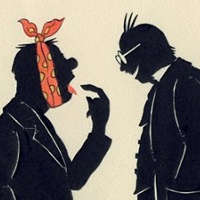
While there’s no scientific proof that more dental emergencies happen on Thursdays than any other day of the week, I can tell you that most dental emergencies tend to happen on a Thursday afternoon, before a long, holiday weekend.
IF ever you’re in doubt about a toothache, no matter what day of the week it is, call your dentist and seek advice. They’ll be able to help you identify the issue and fit you into the schedule as needed!

These fun pics were created using images courtesy of the National Library of Medicine, from the History of Medicine (IHM).


